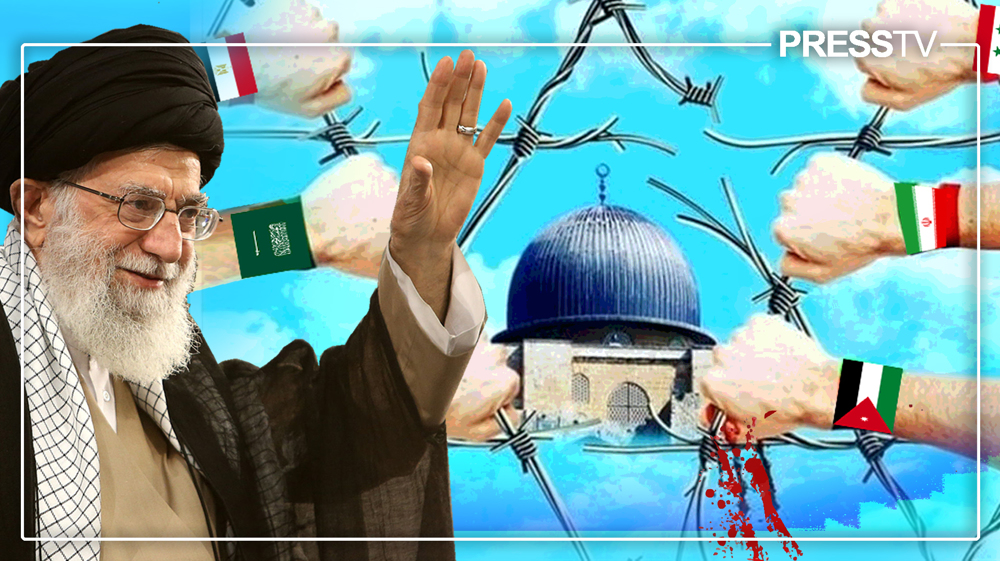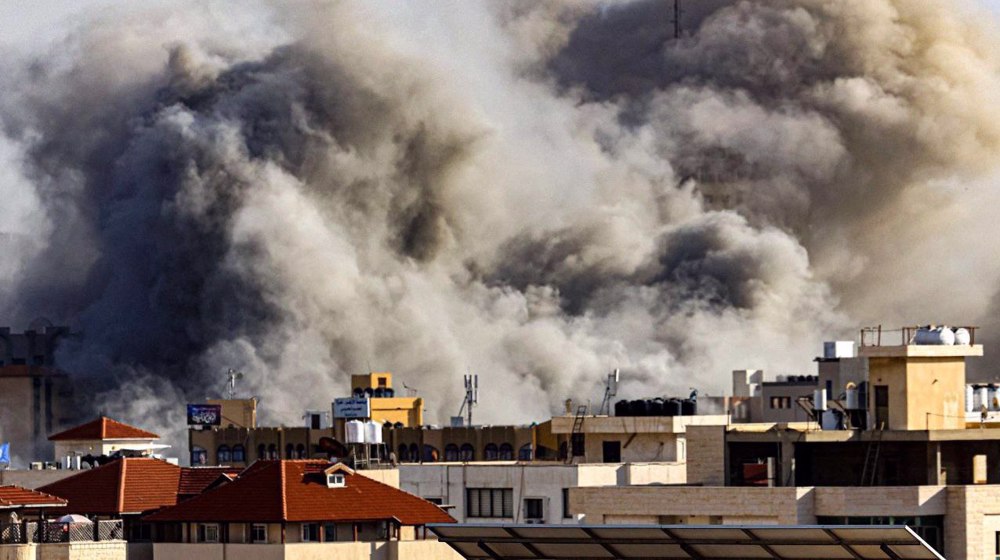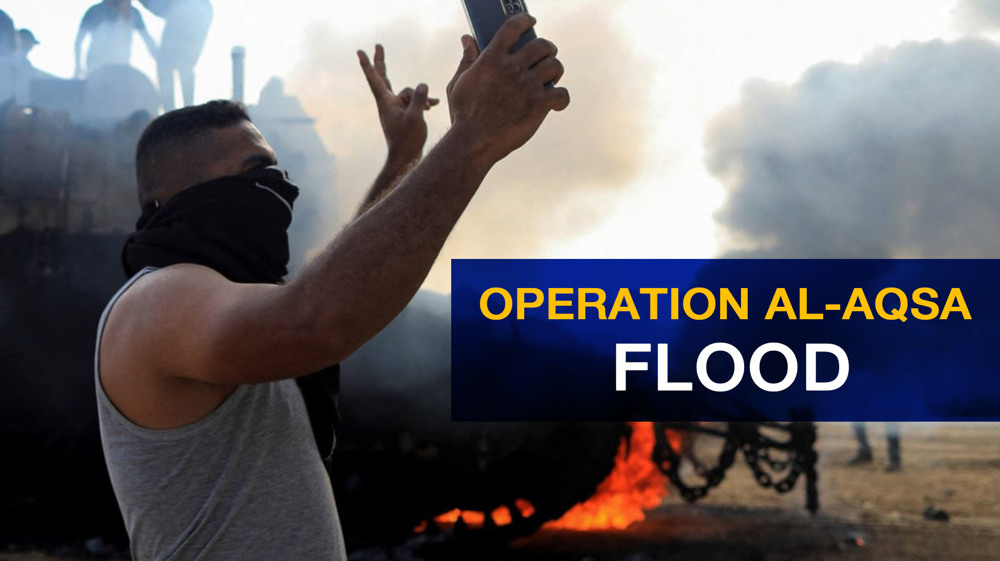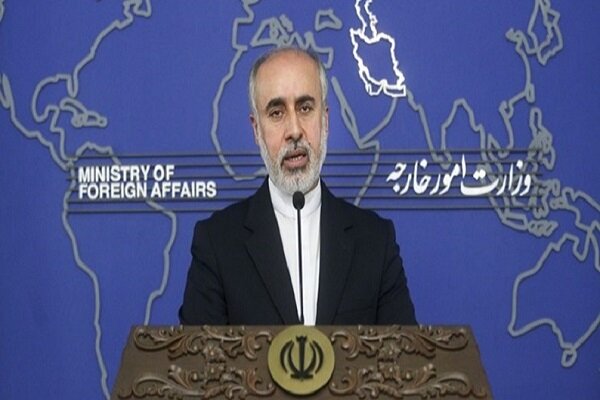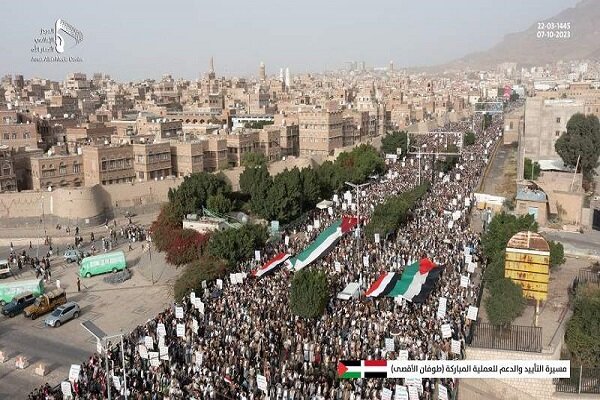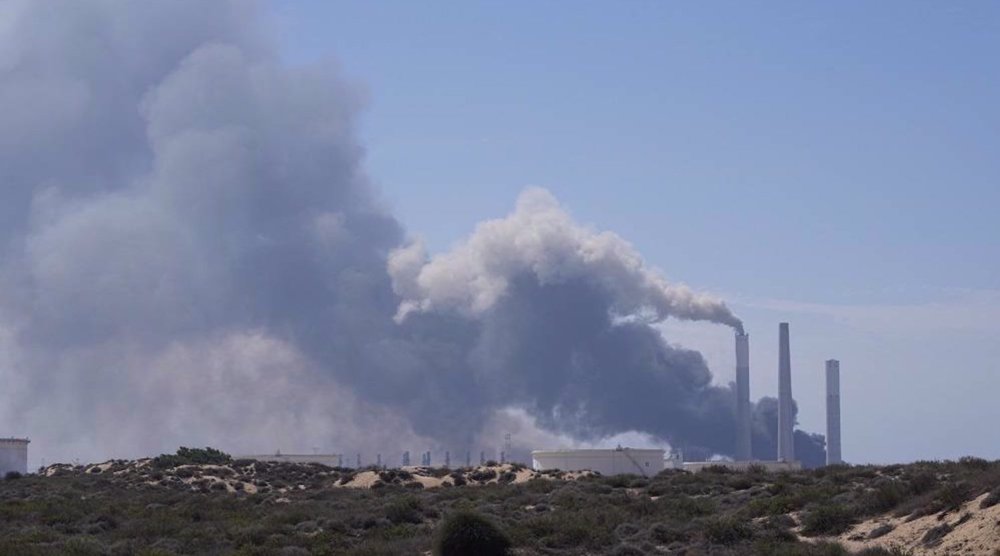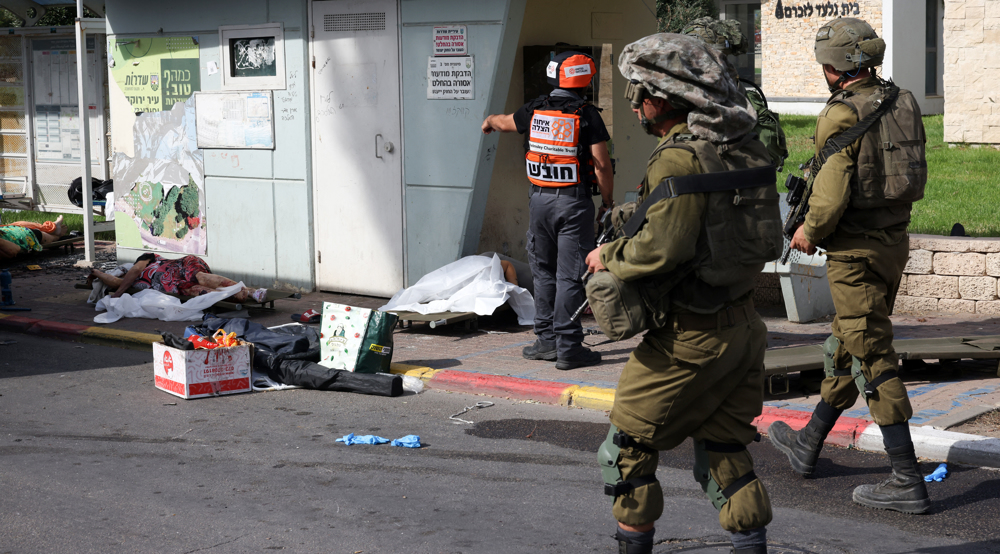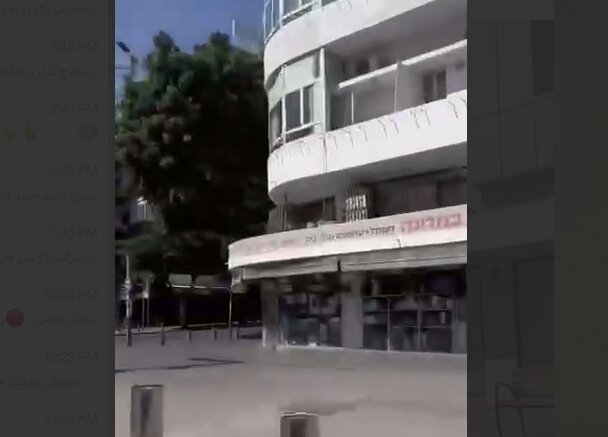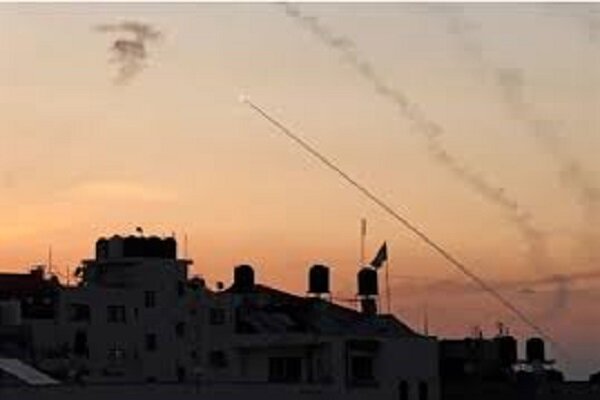By Xavier Villar
In a meeting with the participants of the International Islamic Unity Conference last week, which is held every year to commemorate the birth anniversary of Prophet Mohammad, Leader of the Islamic Revolution Ayatollah Seyyed Ali Khamenei wrote the obituary of the Israeli regime.
In his enlightening address, Ayatollah Khamenei likened the “push for normalization” by some regional countries with the Zionist entity as “betting on the losing horse.”
He predicted that such “normalization” is bound to fail, as the Palestinian resistance has pushed the Zionist regime to the brink of extinction.
On Saturday, a week after his remarks, the Palestinian resistance movement in the Gaza Strip launched a surprise attack on the occupied territories involving aerial, sea and ground operations.
Described as the most devastating military operation since the 11-day war in 2021, the Gaza-based Hamas resistance movement launched ‘Operation Al-Aqsa Storm’ in the early hours of Saturday, firing at least 5,000 rockets and capturing many Israeli regime soldiers.
Daniel Hagari, an Israeli army spokesman, was quoted as saying that the resistance group attacked the occupied territories from land, sea and air, starting with the initial burst of rockets at 6:30 am local time (03:30 GMT).
Dozens of Israeli regime soldiers and illegal settlers are believed to be dead in the Palestinian operation, albeit the exact figure is still not known.
Interestingly, the well-coordinated military operation by Hamas, which has also got the support of other Palestinian groups, followed Ayatollah Khamenei’s warning against normalization with the regime.
“The Islamic Republic firmly believes that governments that have the normalization gamble with the Zionist regime on their agenda will be in harm’s way,” he told the guests in a speech televised live. “This regime is dying and those states are betting on the losing horse.”
Regarding the political dimension of the equation, Ayatollah Khamenei asserted that the situation in Palestine, marked by the colonial occupation, constitutes the most significant challenge that the Ummah has faced in recent decades.
This underscores Palestine’s role as a focal point for the Muslim Ummah.
The Leader of the Islamic Revolution highlighted the crucial role played by Palestinian youth in the struggle against the Zionist colonial system, emphasizing that the Palestinian resistance movement will ultimately succeed in bringing an end to the illegitimate regime and its collaborators.
In this context, he reiterated the significance of unity between Muslim nations to confront the Zionist threat and pointed out that “currently, the Zionist regime is displaying its political animosity not only towards the Islamic Republic but also towards other countries such as Iraq, Syria, and Egypt.”
Ayatollah Khamenei said if the countries in the region unite, the US will no longer be able to show aggression, plunder, or interfere in the internal and external affairs of other countries, citing the case of Libya, specifically the overthrow of Gaddafi, as an example of the Western “policy of plunder.”
“If countries such as Iran, Iraq, Syria, Lebanon, Saudi Arabia, Egypt, Jordan, and the Persian Gulf countries adopt a united policy in their fundamental and general affairs, the aggressive powers will not be able to interfere in their internal affairs or in their foreign policy. They are interfering at this point,” he said, as cited on his website.
His speech indicated that the unity between these countries is crucial to thwart Western plots against the regional countries as well as the Israeli regime’s aggression.
Ayatollah Khamenei explained that the primary reason behind calls for the burning of copies of the Holy Quran in the West is the threat that the Muslim holy book poses to the Western political agenda.
His words should be understood from an epistemic and political perspective, meaning that the Holy Quran presents a fundamentally different paradigm from the Western one, which ultimately aims at the continual pursuit of justice (adl) and engagement in multi-pronged struggles against oppression.
In political terms, this call for unity aligns with the Ummatic aspiration of the Islamic Republic and, specifically, its central role as a significant Islamic power or as a political home for Muslims. The centrality of this Ummatic vision is crucial to understanding the Islamic Republic’s politics.
Politically speaking, it can be said that the Ummatic vision represents an effort to transcend sectarian differences and create a Muslim political identity to transform the world.
Ayatollah Khamenei explained that the intervention in Libya occurred due to the American desire to control the country’s oil reserves. It’s worth remembering that in 2007, shortly before the protests that led to Gaddafi’s overthrow began, the country was ranked as the ninth-largest oil reserve holder in the world, with approximately 41.5 million barrels of oil in reserve.
Another instance of plunder that Ayatollah Khamenei referred to was Syria, where, according to data from the Syrian Ministry of Petroleum, the American occupation, in collaboration with local militias, is responsible for “the theft of approximately 83% of Syrian oil,” amounting to around 66,000 barrels per day.
In total, it is estimated that the cost of American plunder in Syria exceeds $105 billion.
Afghanistan, also mentioned in the Leader of the Revolution’s speech, is another country that has suffered from the American “policy of plunder.” It is estimated that the plundering of the country’s natural resources since the US invasion in 2001 has reached approximately $3 billion.
Lastly, he also highlighted the situation in Iraq and the presence of American and British military forces in the country, along with the attempt to control Iraqi oil wells.
It should not be overlooked that, in addition to military occupation in these countries, there is what could be termed “discursive occupation,” with Afghanistan perhaps being the paradigmatic example.
“Discursive occupation” refers to the political aspect that in some way justifies Western presence in these countries using a variety of arguments, such as the fight against terrorism, democratization, human rights, and the liberation of women, among others.
It can be asserted that the “discursive occupation” tends to portray Muslims as passive beings, stripping them of any political agency.
Indeed, Ayatollah Khamenei’s speech was directed against this passivity.
Xavier Villar is a Ph.D. in Islamic Studies and researcher who divides his time between Spain and Iran.
(The views expressed in this article do not necessarily reflect those of Press TV)

